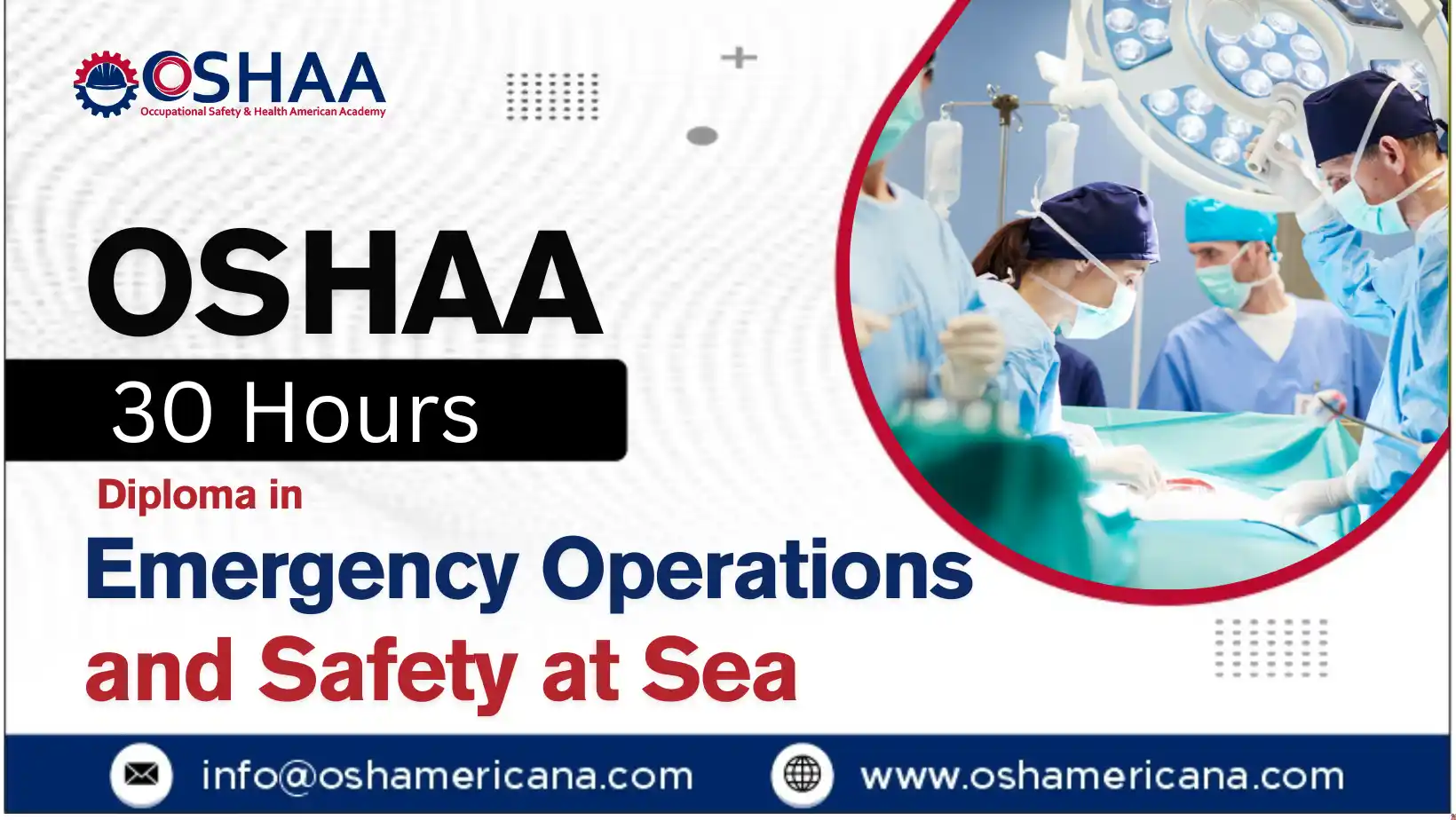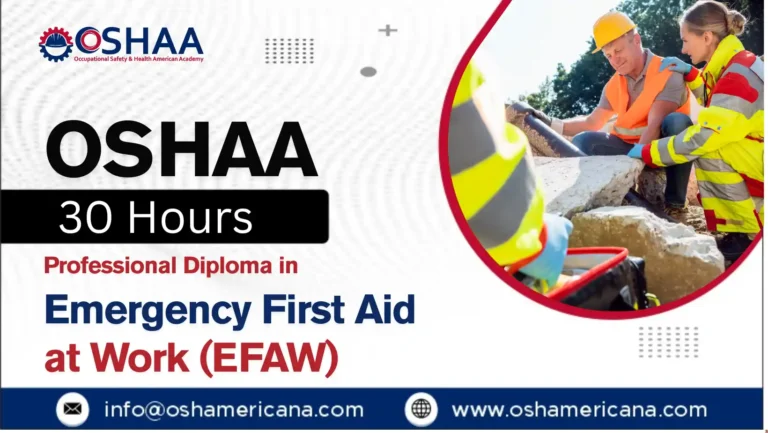The OSHA 30-Hours Diploma in Emergency Operations and Safety at Sea is a specialised programme designed to equip participants with critical skills and knowledge essential for maintaining safety and managing emergencies in maritime environments. This comprehensive diploma is ideal for those involved in maritime industries or seeking to enhance their expertise in safety protocols and emergency response at sea.
Maritime operations present unique challenges due to the isolated and often unpredictable nature of the environment. Participants will gain a thorough understanding of maritime safety regulations, emergency preparedness, and effective crisis management strategies tailored specifically to sea operations. The course emphasises practical skills that are vital for ensuring the wellbeing of crew, passengers, and vessels during emergencies such as fires, collisions, or severe weather events.
With a focus on real-world application, the course prepares participants to act decisively and confidently in high-pressure situations. This preparation not only enhances personal safety but also contributes significantly to the overall safety culture onboard vessels and offshore installations.
Ideal for maritime professionals, safety officers, emergency responders, and anyone involved in sea operations, this diploma provides the knowledge and skills needed to reduce risks and protect lives. Participants will be better positioned to contribute effectively to safety management systems and emergency procedures in their workplaces.
OSHAA 30-Hours Diploma in Emergency Operations and Safety at Sea
Study Units
Learning Outcomes
Introduction to Maritime Safety and Emergency Operations (3 Hours)
- Understand the fundamental principles of maritime safety and emergency operations
- Recognise the unique challenges and risks associated with sea environments
- Describe the roles and responsibilities of personnel during maritime emergencies
Maritime Safety Regulations and International Standards (3 Hours)
- Identify key maritime safety regulations and international conventions
- Understand compliance requirements for safety operations at sea
- Apply regulatory knowledge to ensure lawful and safe maritime practices
Risk Assessment and Hazard Identification at Sea (4 Hours)
- Conduct thorough risk assessments specific to maritime settings
- Identify common hazards and potential emergency scenarios onboard vessels
- Develop strategies to mitigate identified risks effectively
Emergency Communication Systems and Protocols (6 Hours)
- Explain the types and functions of emergency communication equipment used at sea
- Demonstrate proper use of communication protocols during maritime emergencies
- Coordinate efficient communication with rescue services and crew members
Fire Prevention and Firefighting Techniques on Vessels (4 Hours)
- Understand common causes of fire onboard and methods for prevention
- Learn firefighting equipment operation and firefighting strategies in maritime contexts
- Respond appropriately to onboard fire emergencies to minimise damage and risk
Search and Rescue Operations and Procedures (4 Hours)
- Describe the organisation and execution of maritime search and rescue (SAR) operations
- Apply standard procedures for effective rescue missions at sea
- Coordinate with SAR teams to enhance survival chances during emergencies
Survival Skills and Life-Saving Equipment Use (3 Hours)
- Demonstrate knowledge of survival techniques relevant to maritime emergencies
- Operate life-saving appliances such as lifeboats, life jackets, and emergency beacons
- Implement survival plans to maximise safety in emergency situations
Crisis Management and Incident Command at Sea (3 Hours)
- Understand the principles of crisis management in maritime contexts
- Coordinate incident command roles and responsibilities during emergencies
- Develop and implement effective response plans to manage maritime crises efficiently
Course Benefits: OSHA 30-Hours Diploma in Emergency Operations and Safety at Sea
- Provides comprehensive knowledge of maritime safety and emergency procedures
- Equips participants with practical skills to respond effectively to emergencies at sea
- Enhances understanding of international maritime safety regulations and compliance
- Improves risk assessment abilities specific to the maritime environment
- Develops proficiency in operating emergency communication systems and protocols
- Strengthens firefighting and search and rescue capabilities onboard vessels
- Teaches vital survival skills and proper use of life-saving equipment
- Builds confidence in managing crises and leading incident response teams
- Supports safer maritime operations by fostering a proactive safety culture
- Prepares participants for roles requiring specialised emergency management expertise in maritime settings
The OSHA 30-Hours Diploma in Emergency Operations and Safety at Sea is designed for participants involved in maritime professions who require specialised knowledge in safety and emergency response. This course is ideal for:
- Maritime crew members and officers responsible for onboard safety
- Safety managers and emergency response coordinators in marine industries
- Personnel working on offshore platforms and vessels
- Search and rescue teams operating in maritime environments
- Port and harbour safety officials
- Individuals seeking to build a career in maritime safety and emergency operations
- Anyone committed to enhancing their skills in managing maritime emergencies effectively
This diploma provides the essential training needed to ensure participant readiness for handling emergencies and promoting safe operations at sea.







